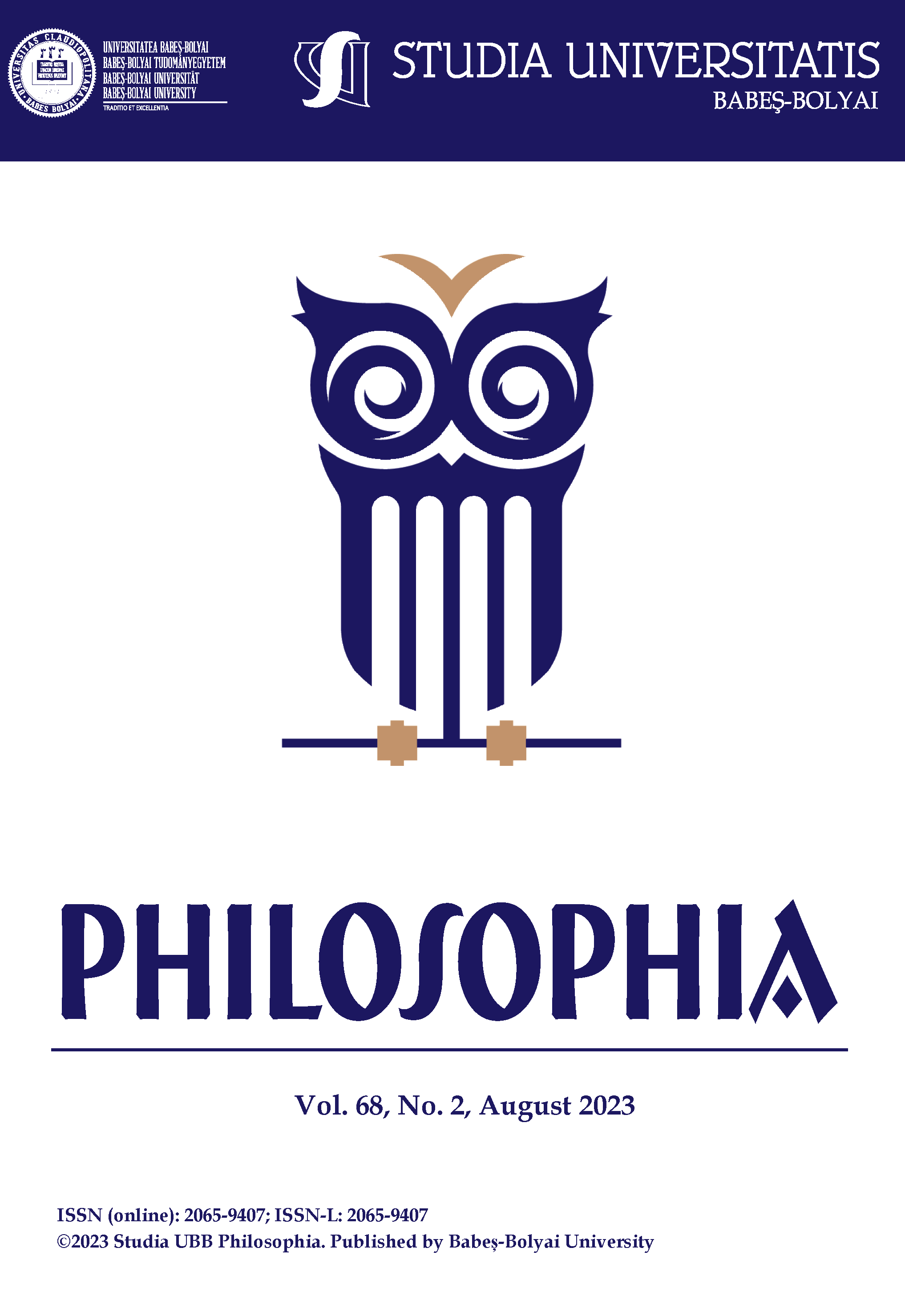THE FRAMING REVOLT: THE ROLE OF UNLIMITED PUNISHMENT IN THE (SO-CALLED) CULTURE OF THE LIMIT
DOI:
https://doi.org/10.24193/subbphil.2023.2.03Keywords:
bios, thanatos, thambos, hybris, Sisyphus, PrometheusAbstract
What is the role of unlimited punishment in a (so-called) limit culture? What is the point of narratives that tell of endless, futile labors and sufferings? Trying to find their role in a dimension that involves much more than an obvious “moralizing” contribution, in the manner of a satire, the unlimited punishment will be researched, by reference to bios and thanatos, at the intersection of public cult, blood sacrifices and mysteries from ancient Greece, looking for its source in civic religion as a punishment for wandering.
References
Cornford, Francis Macdonald, From Religion to Philosophy, New York, USA, 1912
Detienne, Marcel, The Masters of Truth in Archaic Greek, Zone Books, New York, 1996
Eliade, Mircea, A History of Religious Ideas, vol. I and II, The University of Chicago Press, Chicago, 1987
Graves, Robert, The Greek Myths: The Complete and Definitive Edition, Pinguin Books Ltd, London, United Kingdom, 2017
Nussbaum, Martha, The Therapy of Desire, Princeton University Press, Princeton, New Jersey, United States of America, 1994
Vernant, Jean – Pierre, Myth and Thought among the Greeks, Zone Books, New York, 2006
Vernant, Jean – Pierre, The origins Greek thought, Cornell University Press, USA, 1982
Vernant, Jean – Pierre, Mythe et religion en Grèce ancienne, Éditions du Seuil, 1990
Virgilius, The Aeneid, Book VI, Roman Roads Media, 2015
Downloads
Published
How to Cite
Issue
Section
License
Copyright (c) 2023 Studia Universitatis Babeș-Bolyai Philosophia

This work is licensed under a Creative Commons Attribution-NonCommercial-NoDerivatives 4.0 International License.





